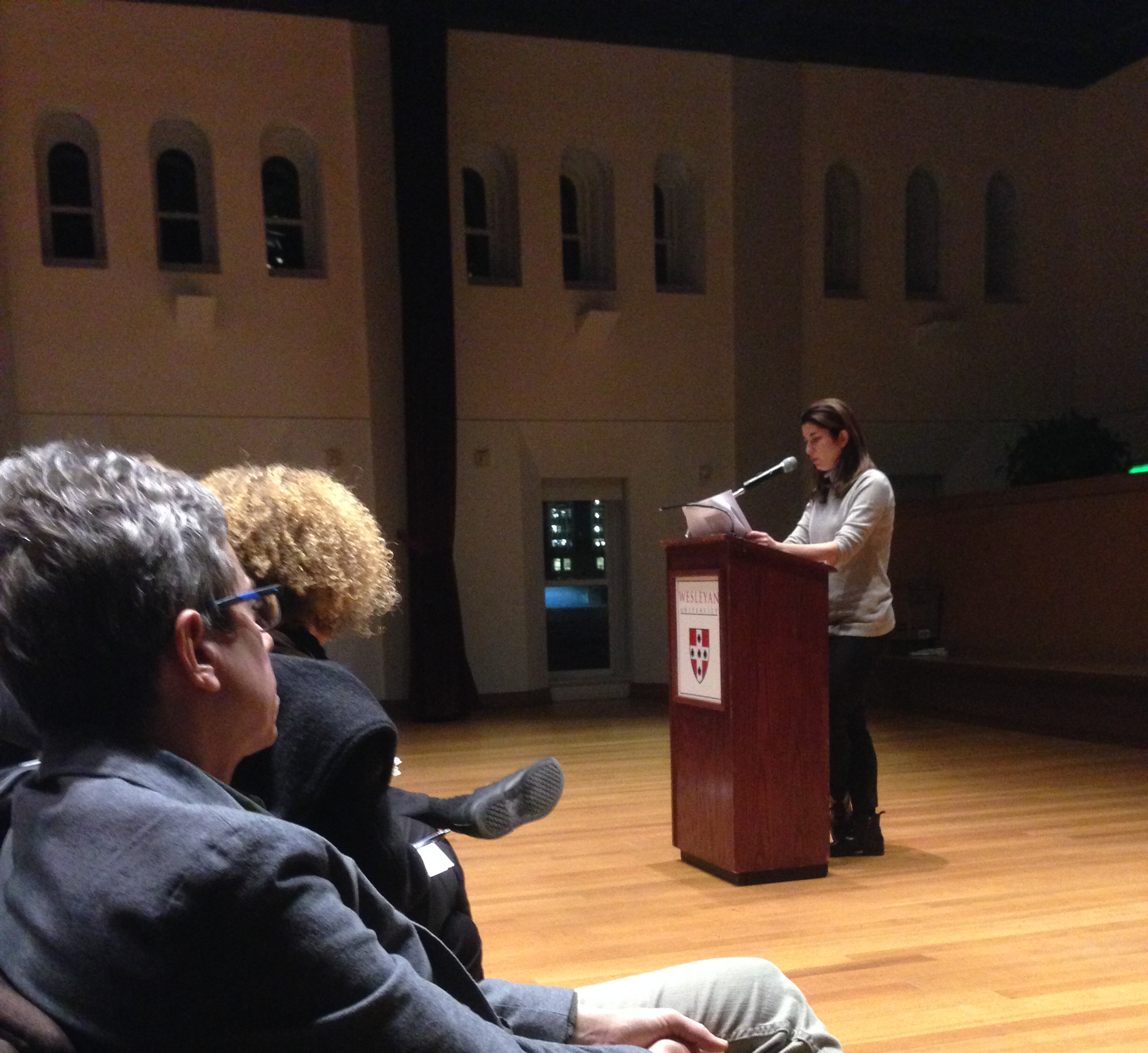
With the increased activism focused on the criminal justice system, New Yorker Staff Writer Jennifer Gonnerman’s lecture entitled “The Art of Prison Writing” produced a pertinent discussion at the University on Thursday evening.
Gonnerman mainly spoke about the process of writing her piece in The New Yorker on Kalief Browder, a sixteen-year-old boy who spent about three years in and out of solitary confinement at Rikers Island without being given a trial for the crime he had been accused of.
After looking through some legal documents, Gonnerman stumbled upon Browder’s predicament and was inspired to follow up.
“I remember…I was alone in my office by myself, and I almost fell off my chair because I was thinking [about being] 16, 17, 18 years old and locked in a tiny box 23 hours a day in solitary confinement,” said Gonnerman. “What is going on? What is that even like? … [It] was enough to get me so angry and distraught over what had happened that I wanted to sort of see if I could meet this young man and see if there might be a story that I could do.”
Browder told Gonnerman his story over the course of many months, explaining how his time in solitary confinement had affected his mental health. He spoke about his desire to wait for a trial that he was not given, despite the deals he was offered if he plead guilty to the crime he had not committed.
“By early 2012, prosecutors had offered [Browder] a deal,” Gonnerman said. “By this point he had been in jail for more than a year, and the deal was three and a half years in prison in exchange for a guilty plead…He refused…even though he knew that if he went to trial and was convicted, he could get up to 15 years in state prison.”
At Rikers Island, the prison where Browder was doing solitary confinement, it was common knowledge that many inmates pleaded guilty to crimes that they had not committed in order to put an end to their ordeal.
“[Browder] had no idea how rare trials actually are,” Gonnerman said. “By early 2013, he was still in jail. It was nearly three years later, and he was caught up in this completely Kafkaesque situation, where in order to prove his innocence he had to stay in prison and keep demanding that trial that was not coming.”
Another point that Gonnerman emphasized about Browder’s situation was how harmful the environment at Rikers was mentally and physically.
“I’m…learning that all those days in solitary confinement had of course tested [Browder’s] sanity in a very intense way and that more than once he had tried to harm himself,” Gonnerman said. “One night he even ripped up his bed sheet and tried to hang himself from a light fixture in his cell…. [Rikers] was a place where even if you wanted to stay out of trouble and mind your own business, at least in the adolescent jail, that was just not possible.”
Although Gonnerman said that Browder likely shared his story with her to spark reform in the criminal justice system and at Rikers Island, his story did not gain national attention until after Browder had taken his life.
“Ultimately over the months that followed, there were a number of initiatives and changes: Kalief’s law was introduced in the New York State legislature, there was one in Congress, and President Obama spoke about him when he announced his initiative to end solitary confinement for juveniles in federal prison,” Gonnerman said. “But of course none of those changes the fact that his death was really a straight-up American tragedy and something that never ever should have happened. To this day I’m still so angry and upset about what happened to him that it’s just hard to make sense of any of it.”
Visiting Assistant Professor of Letters Charles Barber, who knows Gonnerman personally and attended the talk, highlighted the importance of how long Gonnerman has been writing about the criminal justice system.
“[Gonnerman] wrote about criminal justice issues for The Village Voice starting in the ’90s, way before it was fashionable,” Barber said. “What’s going on with criminal justice now, it is wonderful that there’s such attention [in the media] with psychiatry, medications, and mental health [as compared to] 20 years ago. I’ve been around long enough to see the cycles of interest, but the problem is that they waned.”
When asked during the question and answer session that followed her talk how to change the system, Gonnerman admitted that she did not have the answer.
“[Articles like this] do increase scrutiny of every aspect of the system, especially the front,” Gonnerman said. “[It’s] not just about the conditions in jails, as horrific as they can be, but the decisions made at the front about arrests and prosecutions…. There’s been an increased focus in the media on…the dark sides of the criminal justice system, which I feel is the key of building reform efforts.”
However, the mere act of listening and discussing what occurred to Browder are still powerful.
“I appreciate you guys coming here tonight and listening to this story,” Gonnerman said. “I know he would be so appreciative of the fact that people he never met before cared enough to come out, to listen, to read his story, and to think about it.”



Leave a Reply